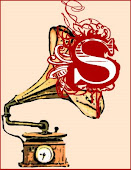
I mentioned Nina Simone's Jelly Roll over on RR, and I think I may have posted it before, but here it is again. It set me thinking, and listening to her music. These three tracks, among many others by Simone, just...I don't really have a word for it in my very inadequate music-describing vocabulary. But I thought I'd share them. I was thinking of what Japanther said about appreciating jazz through a punk lens, and I certainly think these have that energy...
Jelly Roll
Sinnerman
The House of the Rising Sun










15 comments:
Just plain awesome?
Punk muezzin?(sinnerman)
Garage? (HOTRS)
These are great. Dorian recommended Sinnerman a while back but I was weak and lazy and didn't take the bait. I was probably sulking because he preferred Nina's 'Here Comes the Sun' to Richie Havens' version. I think I've probably dismissed Nina Simone as a grumpy-Black-Panther Joan Armatrading heavy. That has changed. I suppose that now makes Joan a relentlessly-cheerful liberal Nina Simone-lite. Hard to picture Ms. Simone doing the theme for 'Wild Geeese' innit?
Yeah, I was thinking of "awesome" in the "Lay in awe on your bedroom floor" sense of the word.
Proudfoot--She also has some very tender and beautiful songs, and some very playful songs.
I was thinking about that word recently. Shouldn't aweSOME and awFUL mean the same thing. Another thing that's been bugging me is the fact that the verb "can" has no future tense. I don't even think it has an infinitive. Can any native English speaker enlighten me?
Awful originally meant "full of awe". I think awesome might be a modern creation to cover aweful's (old spelling) original meaning.
Can - I can only think of the future conditional "could"
Apparently "Can" is a "modal Verb," which maybe means it doesn't have to follow regular-verb rules.
http://dictionary.cambridge.org/define.asp?key=51345&dict=CALDhttp://dictionary.cambridge.org/define.asp?key=51345&dict=CALD
Surely the infinitive is Toucan.
And I wonder if it's our definition of "awe" that has changed. Maybe it originally implied mostly fear, and now it has lost some of the fearfulness.
I do think it's a shame that Americans have overused it to the extent that it's lost a lot of it's power. Totally awesome!
Oops, its power, I meant.
I looked up awful and you're right Mnemonic, awful came before awesome, which is from the 16th century, and whose full definition does contain the inspiration or apprehension or fear. In its archaic sense, awful still means "inspiring reverential wonder or fear". I also learnt that awfulize is a word.
Toucan sounds about right. Still, somebody should come up with something snappier than "will be able to". The new item in my long running tallist campaign, is to assemble a "Great Minds counsel" to start rolling out ideas that will can start implementing a new approach to this uppity verb.
and 'awful' used to be spelled 'aweful', ie full of awe.
oh sorry, Mnemonic, you already said that...
My dad had Ain't Got No...I Got Life on a 7" and when I was a kid I found something morbidly fascinating in the brute power of her voice. Obviously I didn't know anything about her when I was very small but I was torn between loving and hating that song. Her Feelin' Good was the way in for me, and I've found I can stand jazz if Nina is doing it. Scary lady by the sounds of it though.
I think Billie Holiday was already ushering me into jazz when I discovered Nina Simone, but, thinking back, my route to Nina was more through the fact that she'd done versions of songs I knew by Scott Walker (Ne Me Quitte Pas/If You Go Away) and Them (Don't Let Me Be Misunderstood). One thing I always like to remember is that she was a hell of a pianist as well.
May1366, I think that's one of the remarkable things about these 3 tracks in particular--smoking piano.
Time for a holy modal round up. As you note 'can', 'must' and their ilk are only used in the bare infinitive (without 'to'). Because English has no future tense we may use can for the future (You can leave next week)and 'could' for hypothetical future actions (you could call the police/ It could snow tomorrow...). This is fine until we need to express something in the past or future that involves more than simple ability. We can say 'I could play piano when I was five' but not 'After six hours on the internet I could get tickets for the gig'. Or 'If you keep practising you can play Rachmaninov's 3rd by this time next year'. When can means 'with effort' or something like 'manage to' we have to resort to the ugly 'will be able to' or 'was able to'. Yes, it's broke but you can't fix it.
My tricky verbs are 'let' and 'make'. Not followed by the gerund (I enjoy skiing) or the full infinitive 'I want to ski' but by the bare infinitive. 'They let me/made me ski'. However, in the passive voice we need 'to' after make. 'I was made to eat spinach', and there's no passive voice for the verb let: I was let stay up late. Then we need 'allowed to'.
Unless of course let is part of a 'phrasal' or prepositional verb, then the passive voice is OK.
'I was let out/in/off' etc.
Don't even get me started on phrasal verbs.
Thanks Proudfoot. I think it's strange that it took me so long to realise that there's no future tense in English.
Post a Comment